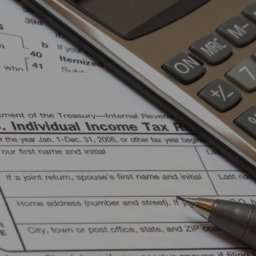
Dealing with Unfiled Tax Returns
Dealing with unfiled tax returns can be a daunting experience for many taxpayers. As a seasoned tax attorney, I’ve witnessed firsthand the complexities and anxieties of navigating this issue. Understanding the IRS’s procedures, potential penalties, and the best ways to resolve unfiled returns is crucial for anyone facing this challenge. This blog aims to demystify the process and provide clear steps to help you regain compliance with the IRS.
Consequences of Unfiled Tax Returns
Unfiled tax returns can lead to various consequences, each adding layers of complexity to your financial and legal standing. These include:
- Late Penalties and Interest Charges: The IRS levies penalties for not filing your taxes on time, which can accrue to significant amounts. Each month your tax return is late, a 5% penalty is applied to any unpaid taxes, maxing out at 25%.
- Impact on Tax Refunds: If you delay filing your taxes, you might lose out on any refunds due. The IRS only issues refunds for returns filed within three years of the due date, beyond which any potential refunds are forfeited.
- IRS Enforcement Actions: The IRS may initiate various enforcement actions for unfiled returns, such as filing a return on your behalf and arbitrarily assessing a large back tax. Once the IRS assesses this arbitrary tax on a return called a Substitute for Return (also known as SFR), they can begin collection. The SFR process can lead to additional stress and an exaggerated financial burden.
IRS Policy Statement 5-133 Explained
This policy requires taxpayers to file their last six years of tax returns to maintain good standing with the IRS. This six-year guideline serves as a standard measure for compliance, ensuring taxpayers fulfill their obligations within a reasonable and manageable timeframe.
However, the policy is not without exceptions, and there are circumstances under which the IRS may extend this six-year requirement. Such instances typically arise in more complex tax situations. For example, if a taxpayer has substantial unpaid taxes, is involved with business returns, or if a revenue officer is handling a specific case, the IRS might require tax filings that go back more than six years.
These additional demands are made to ensure thorough compliance and accurate assessment of the taxpayer’s obligations.
Steps to Resolve Unfiled Tax Returns
Resolving unfiled tax returns is a detailed process involving several methodical steps. Each step is crucial in ensuring that the resolution is both effective and compliant with IRS regulations:
- Gathering Documentation: Collect all necessary financial documents, such as W-2s, 1099s, and other relevant income information.
- Filing Past-Due Returns: Ensure accuracy when filing back taxes. Inaccuracies can lead to further complications.
- Monitoring Compliance: Keep track of the processing of your returns and any subsequent compliance actions required by the IRS.
Penalties and Solutions for Late Filing
Two primary penalties that taxpayers face are the Failure-to-File and Failure-to-Pay penalties. These penalties can quickly accumulate, adding a significant financial burden over time. The Failure-to-File penalty is more severe, compounding monthly on the unpaid tax amount and can grow to a considerable sum if not addressed promptly.
However, taxpayers have options to mitigate these penalties. One such avenue is Penalty Abatement. This can be particularly helpful for those facing penalties for the first time. Taxpayers can request first-time penalty abatement based on a history of prior compliance or present reasonable cause arguments to explain their late filing or payment. Despite the delay, these arguments must be well-founded and documented, demonstrating the taxpayer’s earnest effort to comply with tax laws.
The IRS offers various payment plan options for those unable to pay their back taxesin full. These agreements allow taxpayers to settle their debts in a more manageable manner over time. The right payment plan depends on the individual’s financial situation and the tax amount owed.
Why Use A Tax Lawyer
The complexities of unfiled tax returns often require more than an individual effort, which is why utilizing the expertise of a tax lawyer can be immensely beneficial. The advantages of professional legal assistance in such scenarios include:
- Benefits of Professional Help:
- A tax lawyer brings a wealth of knowledge and experience in dealing with the IRS and understanding the nuances of tax law. This expertise is crucial in ensuring your tax filings are accurate and compliant with current regulations.
- Expert advice from a tax lawyer can be pivotal in identifying potential problems and opportunities in your case. For instance, they can advise on the likelihood of qualifying for penalty abatement or the feasibility of various payment plans.
- Tax lawyers are skilled negotiators who can effectively communicate and advocate on your behalf with the IRS. This is particularly valuable during disputes, negotiations for payment plans, or while seeking penalty relief.
- Authorizing Assistance:
- By authorizing a tax lawyer to represent you, you empower them to interact directly with the IRS on your behalf. This representation can alleviate the stress and uncertainty of dealing with complex tax issues yourself.
- A tax lawyer can access and interpret your IRS records, correspond with the IRS, and attend meetings or conferences with the IRS for you. This comprehensive representation ensures that your case is handled efficiently and professionally.
- Furthermore, with a tax lawyer’s representation, you benefit from attorney-client privilege, which offers a level of confidentiality not available with other tax professionals. This privilege can be crucial, especially in cases involving sensitive financial information or potential exposure to legal risk.
 Need Legal Help?
Need Legal Help?
As a tax attorney with extensive experience in such cases, I am here to help you navigate this complex process. If you’re struggling with unfiled tax returns, don’t hesitate to ask for assistance.
Together, we can work towards achieving compliance and peace of mind.
Contact me today for expert assistance and take the first step towards resolving your tax issues. (877) 544-4743




